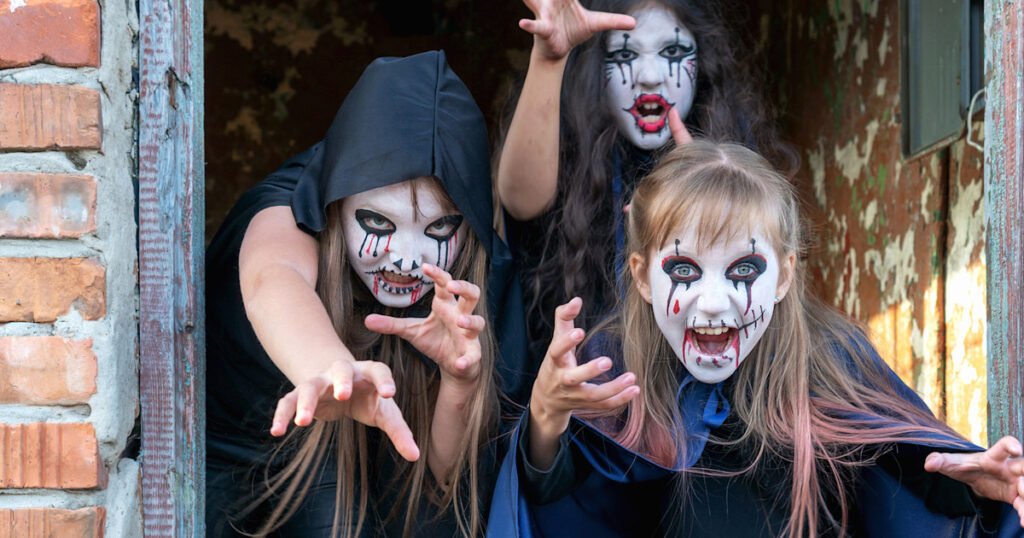
What’s the Right Age to Stop Trick-or-Treating?
What is the right age to stop trick-or-treating on Halloween? Are teenagers too old for the tradition? This question sparks much discussion each year.
While kids are eager to grab free candy, some parents contemplate when it becomes developmentally suitable for teens to put away their Halloween bags.
“There isn’t a specific age at which kids ‘should’ cease trick-or-treating, but many tend to find alternative ways to celebrate Halloween post-high school,” says Sheryl Ziegler, a family therapist from Denver, speaking to TODAY.com. “The choice to stop often hinges more on behavior than on age.”
If your older child enjoys trick-or-treating, that’s perfectly fine. According to a 2021 YouGov survey, more than a quarter of adults (26%) believe that children are never too old for this festive tradition.
Moreover, 46% of parents concurred in a survey conducted by TODAY.com.
In the TODAY survey, 16% of adults felt that kids should stop trick-or-treating by ages 17 or 18, while 19% suggested ages 15 or 16 as the cut-off. Just 1% thought that kids older than 9 shouldn’t engage in going door-to-door.
In Chesapeake, Virginia, authorities have set age 14 as the limit, while Bathurst, New Brunswick, Canada, has enacted a law forbidding kids aged 16 and older from ringing doorbells.
However, it’s notable that “though this ordinance has been around since about 1970, the City of Chesapeake has never detained or charged anyone under this law,” a city spokesperson informed TODAY.com. “It exists to give police officers a means of detaining individuals who may cause a disturbance or engage in similar behavior.”
“Officers do not spend Halloween night ‘checking IDs’ of trick-or-treaters, nor are they actively searching for ‘over age’ participants,” the spokesperson added.
A representative from Upper Deerfield Township in New Jersey shared with TODAY.com that there was once a suggestion limiting trick-or-treaters to those 12 years old and younger, but “there were no enforcement or penalties related to this suggestion.”
How old is too old for trick-or-treating?
This question tends to make etiquette expert and author Catherine Newman roll her eyes just a bit.
“If a 17-year-old wishes to dress up with friends and share candy at the end of the evening, I think that’s wonderful,” Newman told TODAY.com. “Younger children beam with joy when they see older kids dressed up; it fuels their excitement.”
However, Ziegler recognizes the general anxieties about older children roaming the streets on Halloween night.
There is the risk of frightening younger kids with excessively gory costumes or pushing them aside to scoop up large amounts of candy. Additionally, they might alarm adults by being excessively loud or ringing doorbells late into the night.
Ziegler, however, points out that children of all ages can exhibit such behavior and proposes “common-sense solutions.”
“If you’re a parent of younger kids, consider trick-or-treating earlier in the evening, and if you have older kids, remind them to be considerate of their surroundings and behavior,” she advises.
Newman adds that those answering the door should remain courteous as well.
Older children with developmental disabilities may also still wish to partake in trick-or-treating, notes Newman, emphasizing the need to refrain from comments like, ‘Aren’t you a bit too old?’
“My 10-year-old son has invisible special needs,” shares Amanda O’Connor, a mother from Nashville.
“He has always gravitated toward content and activities aimed at younger audiences,” she explains. “I expect him to want to trick-or-treat long after other kids have stopped.”
At what age should you stop trick-or-treating?
Some parents prefer their teens to continue trick-or-treating simply to keep them out of trouble, and it’s worth noting that numerous older kids are responsible for accompanying their younger siblings during the event. “We shouldn’t discourage them from spending time with their brothers and sisters,” says Ziegler.
“Kids should be allowed to trick-or-treat until they’re 18,” Brandi Harris from Oklahoma City tells TODAY.com. “It’s way better than attending a party where dangers lurk, like spiked punch. If a kid still wants to engage in innocent fun, why would we want to stop them?”
Furthermore, it’s one activity that doesn’t involve screens.
“Everything feels so complicated and digital nowadays,” Newman explains. “Going trick-or-treating brings back a sense of nostalgia. Let them relive their childhood for just one night.”
This article was originally published in 2019 and has been revised.



